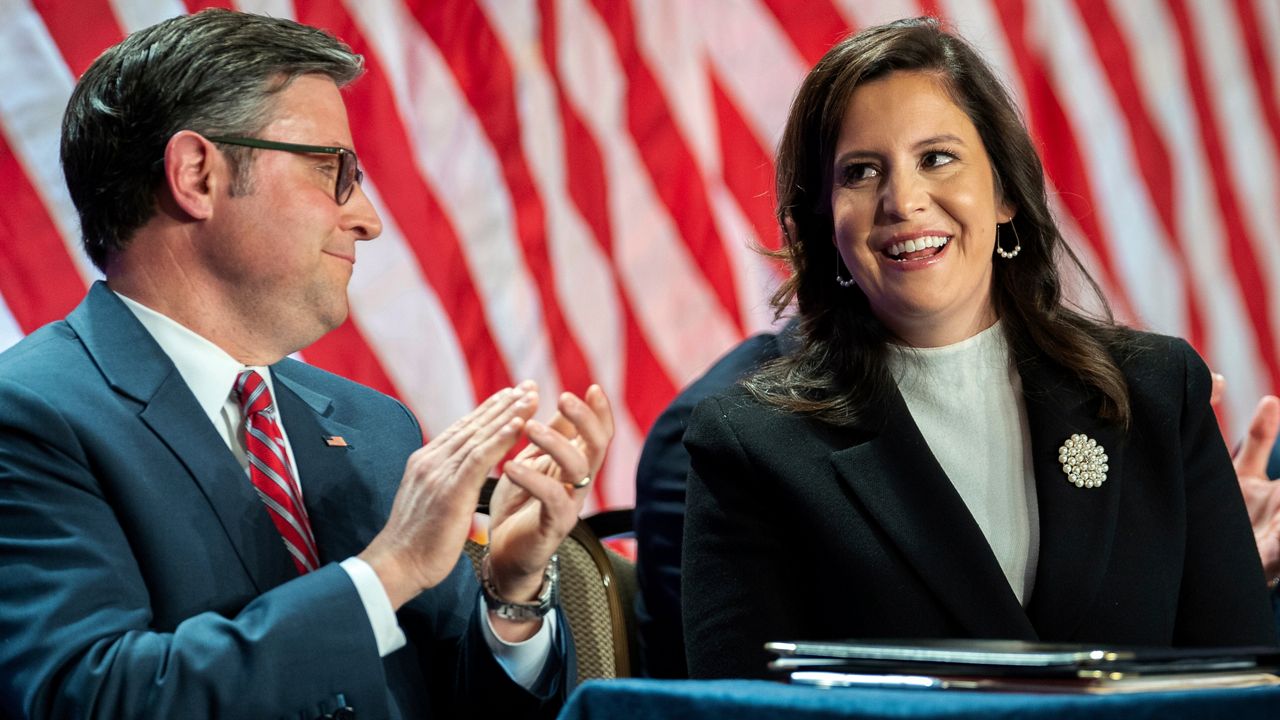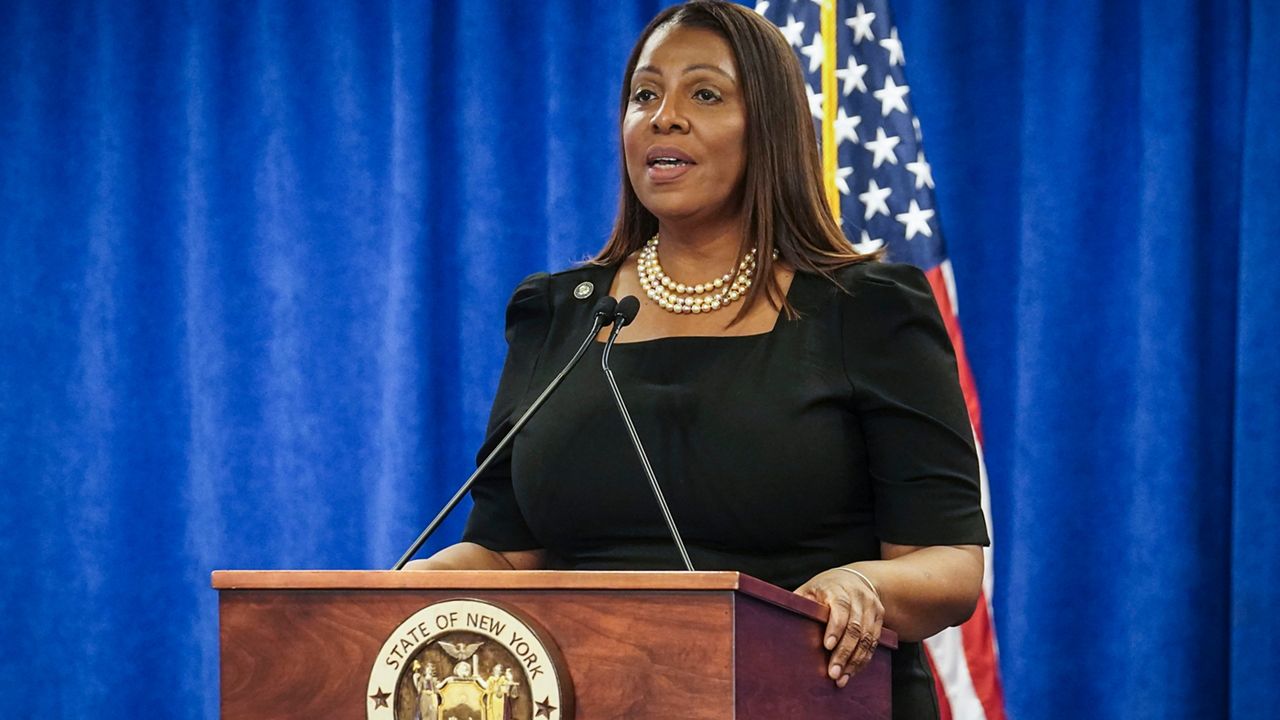Two health care facilities filed suit against the state Health Department to further delay changes to New York's pharmacy system days before it takes effect.
Federally Qualified Health Centers Heritage Health and Housing Inc. in Harlem and Evergreen Health, based in Buffalo, filed the lawsuit against the Health Department in state Supreme Court in Manhattan late Friday to push back against the carveout of a program in the rollout of NYRx — a state-managed Medicaid pharmacy system to begin April 1.
The state-managed system would remove the 340B Medicaid program, which allows providers to pay discounted prices for prescription drugs from managed care plans.
The suit alleges the changes are discriminatory and violate provisions of the Affordable Care Act.
"The carveout takes a lot of resources away from Federally Qualified Health Centers," said Michael Lee, Evergreen Health Chief Operating Officer.
Evergreen Health estimates it will lose about $14 million annually after the changes take effect next week.
"...That of course rips away much-needed services and programming from the safety net in Buffalo," Lee added. "This is something that's happening across the state for all safety-net providers."
Lee argues the state plan will weaken Medicaid pharmacy benefits and take money or discounted drugs to hospitals that serve low-income patients, or people most affected by the pandemic.
The state Health Department is promising to reinvest the money saved into facilities impacted by the changes and make them whole.
Assemblyman John McDonald, a pharmacist and former pharmacy owner, says several health facilities have other financial interests in keeping the program as-is, and is skeptical they will lose the amount of money they claim, citing a lack of transparency in data submitted to state agencies.
"The fact that they're being reimbursed dollar-for-dollar for what they pretend to say they're going to lose without providing any proof indicates to me that there's other, ulterior motives," McDonald said Monday.
Managed care plans often have narrow networks, McDonald argued, which has excluded certain pharmacies and led to several closing their doors.
The state will manage drug benefits for pharmacies under NYRx. McDonald said the state-run program will expand access for New Yorkers by working with one manager under one plan to ensure Medicaid recipients are treated equally.
Counsel for Heritage Health and Housing Inc. is hopeful a judge will be assigned to the New York case this week and will make a decision on the preliminary injunction before the changes take effect at the end of the week.
"If this goes forward on April 1, reversing course will be very disruptive," Lee said. "Our goal with the lawsuit and temporary restraining order is to get some relief to let the budget process play out."
California implemented a similar state-managed program to buy prescription drugs for its Medicaid patients since the pandemic. Health clinics on the west coast also fought against the change for similar concerns of losing millions of dollars and cutting services.
But a judge denied many clinics' request in federal court to be exempt from the program.
Attorneys representing the health centers behind New York's suit say they are confident in their legal arguments.
The state changes come as the federal government continues to decrease investments in and manufacturers vacate the 340B program.
The state-run fee-for-service model will improve transparency and maximize the state's ability to leverage pharmacy rebates to support the 7.8 million New Yorkers enrolled in Medicaid, according to the Health Department.
The state pharmacy system's transition to a fee-for-service model operated by the Health Department was approved in 2020. The changes legislated in previous budgets were delayed because of the COVID-19 pandemic.
Gov. Kathy Hochul included language in her executive budget proposal to keep April 1 implementation date, which the Legislature included in last year's spending plan.
"This is nothing new," McDonald said. "Everybody knew we were moving toward it."
The Senate and Assembly propose a modified plan to allow the 340B program to stay in place amid statewide structural changes, based on compromising legislation sponsored by Senate Health Committee Chair Gustavo Rivera.
"I am glad that a modified version of my bill was included in the Senate one-house," Rivera said Monday. "My proposal would safeguard safety-net providers and their vulnerable patients by eliminating burdensome administrative costs while protecting independent pharmacies from Pharmacy Benefit Managers. It is my hope that stakeholders continue negotiations toward the same goal: To ensure that safety-net institutions remain financially whole and continue to serve some of the highest-needs populations in our state."
It would satisfy the health centers behind the lawsuit if the legislation was included in the final budget, according to their counsel.
But the Pharmacists Society of the State of New York is against the Legislature's proposal, and maintain it's an insufficient compromise because lawmakers did not consult them about it. The lawmakers' plan allows Pharmacy Benefit Managers to continue to keep money that could go to patient services, pharmacists said.
"It leaves them in place to continue to play their games and extract their pound of flesh from our Medicaid program and from our state," said Steve Moore, a pharmacist and owner of Condo Pharmacy in Plattsburgh.
Officials with the Health Department stress health providers will continue to have access to reduced drug prices for which they will receive Medicaid reimbursements. Eligible entities may continue using the 340B program and receiving drugs at reduced prices after the transition, according to the department.
“Gov. Hochul’s FY 2024 budget makes the long-awaited transition back to a fee-for-service pharmacy system, which will create transparency in reimbursements to pharmacies, eliminate profiteering among health care intermediaries, leverage the state’s purchasing power to negotiate with drug manufacturers, streamline practitioner administration and reduce confusion for the Medicaid recipients themselves when they pick up their medication," Health Department spokeswoman Cadence Acquaviva said in a statement Monday. "Moreover, the budget will reinvest a significant level of savings realized by this transition to support 340B providers so that they can continue serving the vulnerable populations relying on their services.”
Last month, acting Health Department Commissioner Dr. James McDonald said the department is committed to ensuring the money is reinvested in facilities that will lose revenue in the transition.
Hochul's executive budget proposes re-investing more than $700 million to 340B providers, including Ryan White providers, Federal Qualified Health Centers and hospitals, and ensure that no funds are diverted from these entities by intermediaries.
The U.S. Health Resources & Services Administration administers the 340B program. To access a database of all 340B providers, visit Search Covered Entities (hrsa.gov).











